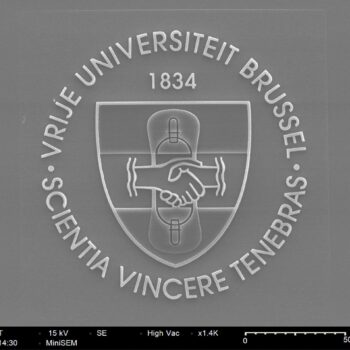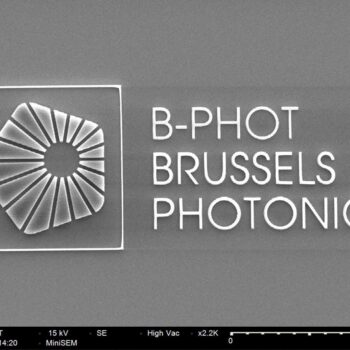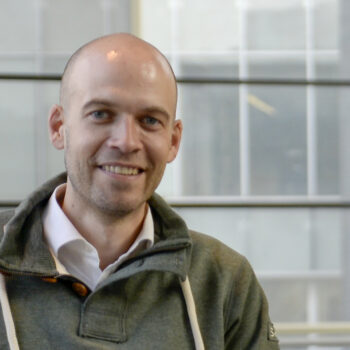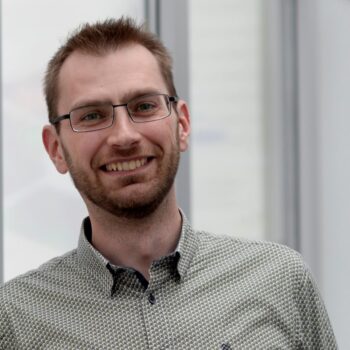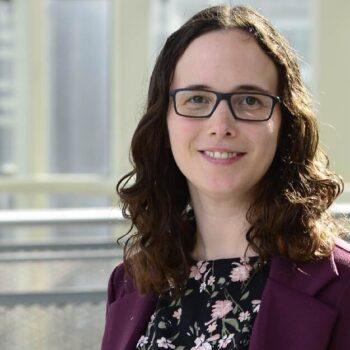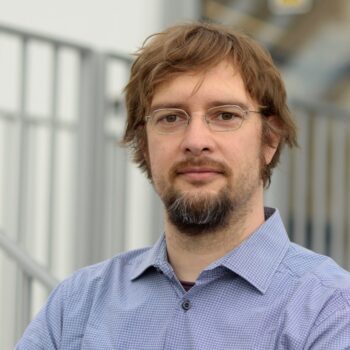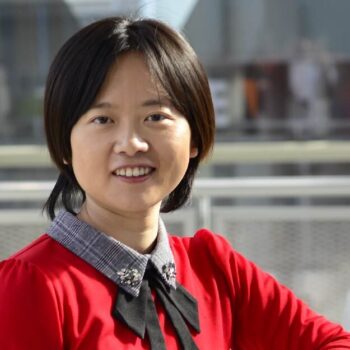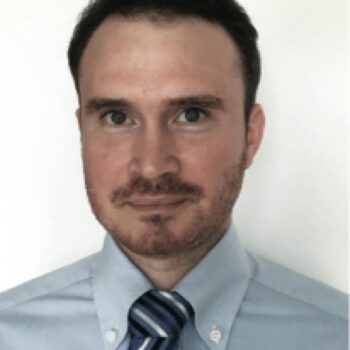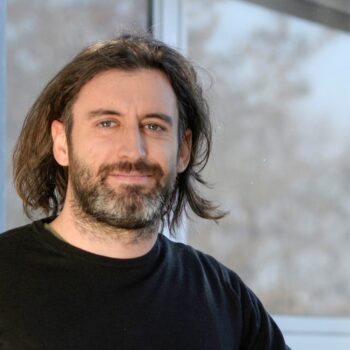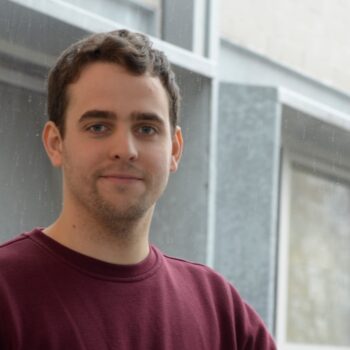Freeform Optics
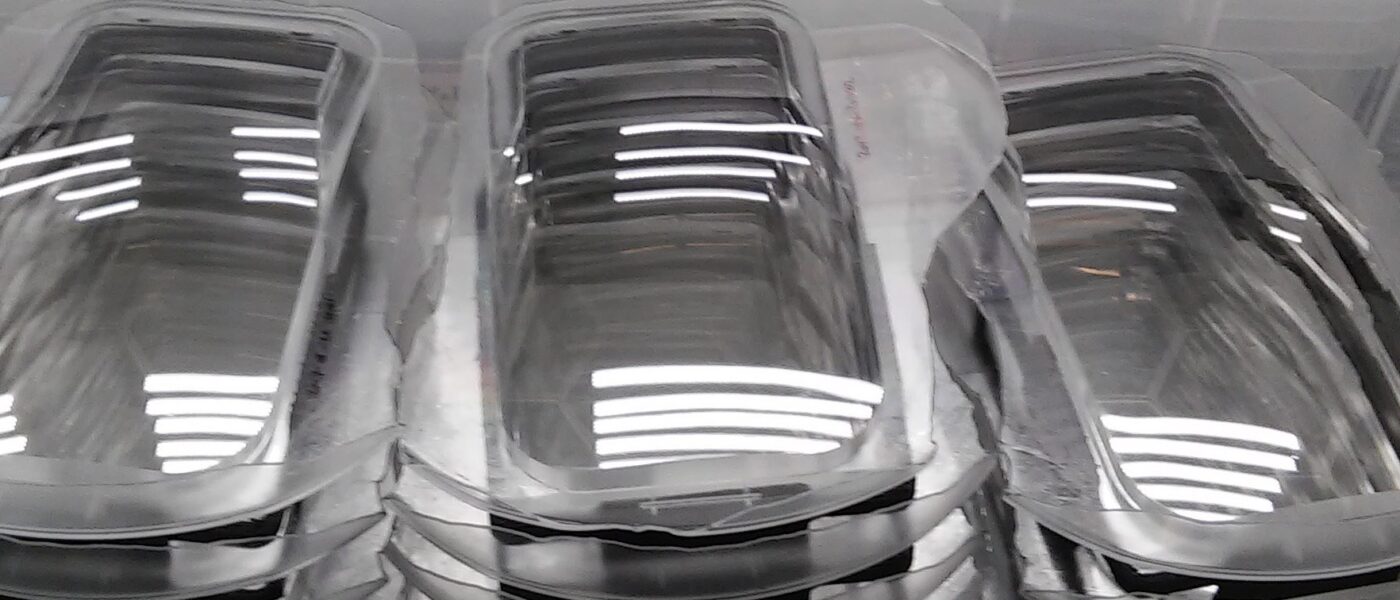
Freeform Optics
The B-PHOT freeform optics team combines expertise on optical design, modelling, prototyping, manufacturing, and testing of complex and extreme micro-, mini-, and macro optical spherical, aspherical, freeform and hybrid optical components and systems.
We operate a fully equipped state-of-the-art prototyping and pilot-line dedicated to the manufacturing and production of refractive glass and plastic optical components in a purpose-built 3000 m^2 Photonics Innovation Centre in Gooik.
The optics technology platform is founded on cutting-edge extreme manufacturing equipment and instrumentation, and covers the full supply chain from world-unique and patented “first-time-right” freeform optical design, to optical grade glass and plastic prototyping and metal mould fabrication with top-notch milling and diamond tooling equipment and extreme surface polishing, to mass-manufacturing with hot embossing, plastic injection and glass press moulding facilities, supported by front-line optical metrology and testing equipment in ISO class 7 cleanroom environment.
We manufacture diffractive, refractive and hybrid freeform optical components from a single component to batches of thousands of components at a pre-commercial level in a variety of optical grade materials such as high-end plastics, high-quality glasses, to high refractive index semiconductors like ZnS, ZnSe, GaAs, Si, and Ge, spanning the entire optical transmission spectrum from UV to Mid-IR.
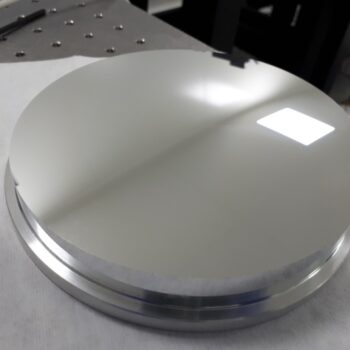
Freeform mirror for ultra short-throw projection
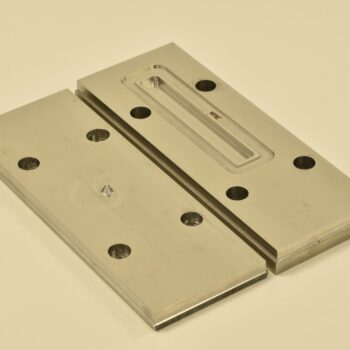
Lab-on-chip double-sided molds
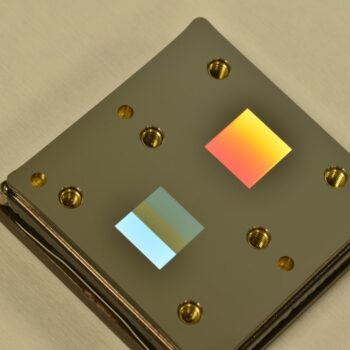
Hot-embossing mold with broadband gratings
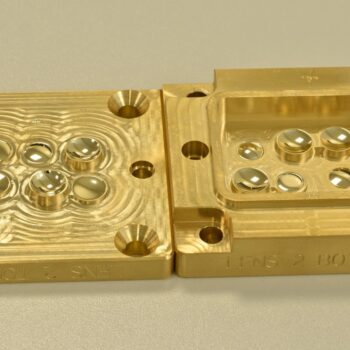
Double-sided multilens replication
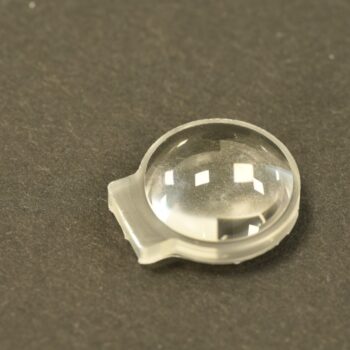
Freeform/aspheric polymer lenses for high-power applications
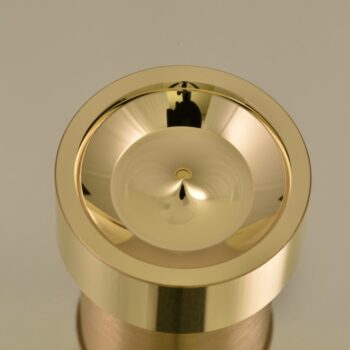
SERS-light capturing mirror
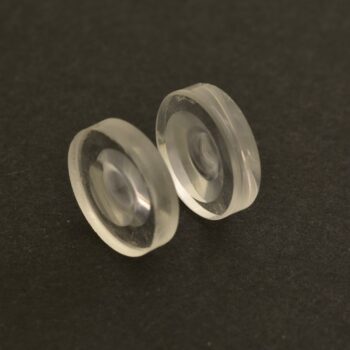
Remote sensing CaF2 lens stacks
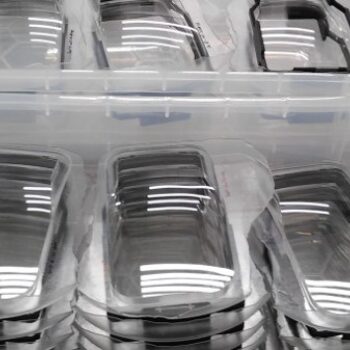
Hot-embossed head-up display freeform mirrors
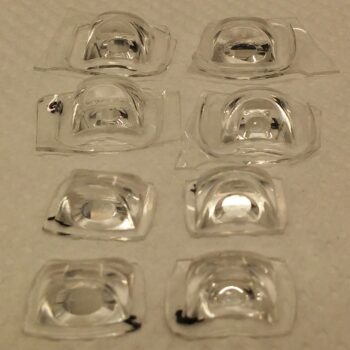
Free form lenses
3D Printing of micro-optical components
Femtosecond laser-based micromachining allows us to fabricate structures with feature sizes smaller than 200nm. This enables the design and rapid fabrication of multilevel diffractive optical elements (DOEs) for beam shaping, beam splitting or pattern generation. Or of interfacing micro-structures for fiber-to-fiber or fiber-to-chip interconnections, through mode field conversion tapers. Larger area structures such as micro-lenses or micro-mirror arrays are also possible.
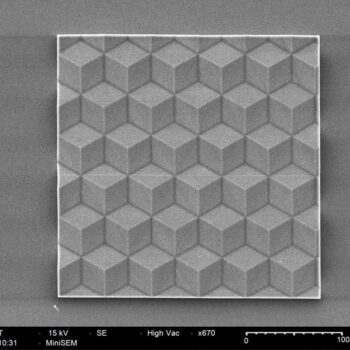
Microreflectors
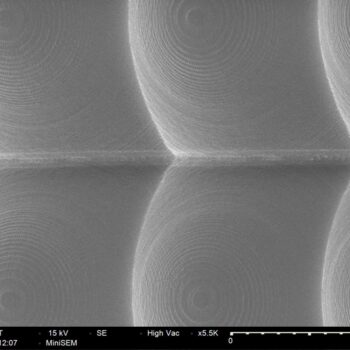
Arrays of concave microlenses
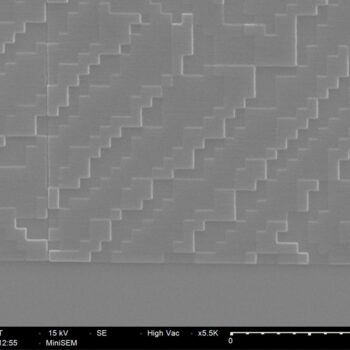
Multilevel diffractive optical elements
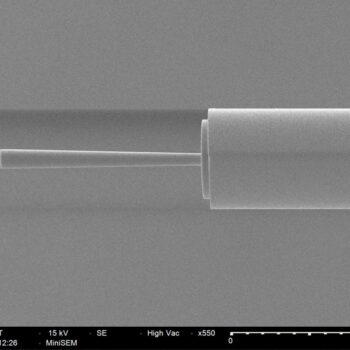
Beam expansion tapers on optical fibers
